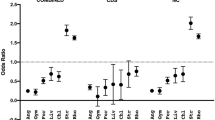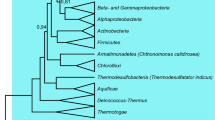Abstract
The influence of local base composition on mutations in chloroplast DNA (cpDNA) is studied in detail and the resulting, empirically derived, mutation dynamics are used to analyze both base composition and codon usage bias. A 4 × 4 substitution matrix is generated for each of the 16 possible flanking base combinations (contexts) using 17,253 noncoding sites, 1309 of which are variable, from an alignment of three complete grass chloroplast genome sequences. It is shown that substitution bias at these sites is correlated with flanking base composition and that the A+T content of these flanking sites as well as the number of flanking pyrimidines on the same strand appears to have general influences on substitution properties. The context-dependent equilibrium base frequencies predicted from these matrices are then applied to two analyses. The first examines whether or not context dependency of mutations is sufficient to generate average compositional differences between noncoding cpDNA and silent sites of coding sequences. It is found that these two classes of sites exist, on average, in very different contexts and that the observed mutation dynamics are expected to generate significant differences in overall composition bias that are similar to the differences observed in cpDNA. Context dependency, however, cannot account for all of the observed differences: although silent sites in coding regions appear to be at the equilibrium predicted, noncoding cpDNA has a significantly lower A+T content than expected from its own substitution dynamics, possibly due to the influence of indels. The second study examines the codon usage of low-expression chloroplast genes. When context is accounted for, codon usage is very similar to what is predicted by the substitution dynamics of noncoding cpDNA. However, certain codon groups show significant deviation when followed by a purine in a manner suggesting some form of weak selection other than translation efficiency. Overall, the findings indicate that a full understanding of mutational dynamics is critical to understanding the role selection plays in generating composition bias and sequence structure.
Similar content being viewed by others
Author information
Authors and Affiliations
Rights and permissions
About this article
Cite this article
Morton, B. The Role of Context-Dependent Mutations in Generating Compositional and Codon Usage Bias in Grass Chloroplast DNA . J Mol Evol 56, 616–629 (2003). https://doi.org/10.1007/s00239-002-2430-1
Received:
Accepted:
Issue Date:
DOI: https://doi.org/10.1007/s00239-002-2430-1




